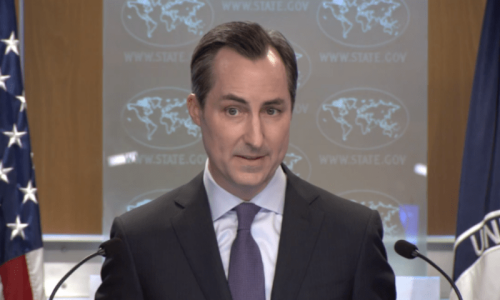THE Delhi High Court has overturned the Indian government’s decision to ban the import of author Salman Rushdie’s The Satanic Verses because the original notification cannot be found, Britain’s The Independent daily reported.
The 1988 novel explores age-old subjects of good and evil and features religious figures. The blasphemous book enraged Muslims and caused widespread controversy.
The book ended up being banned in several countries, including Pakistan, India and South Africa.
An Indian magazine published excerpts from the book, along with an interview of Rushdie, in Sept 1988, prompting Indian politicians Syed Shahabuddin and Khurshid Alam Khan to demand a ban.
On Oct 5, 1988, the Indian government banned the import of The Satanic Verses.
Lost or misplaced
It has now come to light that the notification issued by India’s customs authorities in 1988 banning the book’s import cannot be found, leading to disposal by the Delhi court of a petition that asked for the notification to be produced before it.
A writ petition against the Central Board of Indirect Taxes & Customs (CBIC) was filed by Sandipan Khan in 2019, challenging the constitutional validity of the notification that banned the novel’s import under a 1962 law.
Sandipan Khan informed the court that he had filed an application under India’s Right to Information Act in 2017, requesting a copy of the notification.
He received a reply that the notification cannot be submitted to the court since the file carrying it was untraceable.
The petition was adjourned a number of times and the CBIC sought more time from the court to find the notification.
In Nov 2022, the court said Mr Khan “seeks a final opportunity to make efforts to trace the said file” and that the respondent needed to file an affidavit on what procedure should be adopted if statutory notifications are lost or misplaced.
Finally, the Delhi court disposed of Mr Khan’s petition on Nov 5, 2024, stating: “In light of the aforesaid circumstances, we have no other option except to presume that no such notification exists, and therefore, we cannot examine the validity and dispose of the petition as infructuous.”
Based on this order, the court stated that since the notification is now presumed to be non-existent, Mr Khan is “entitled to take all actions in respect of the said book as available in law”.
Published in Dawn, November 8th, 2024













































Dear visitor, the comments section is undergoing an overhaul and will return soon.